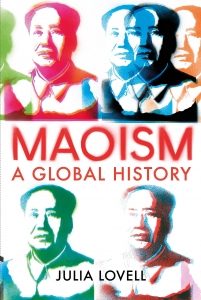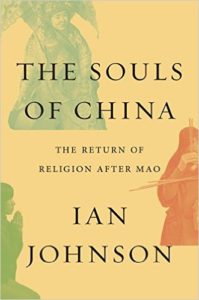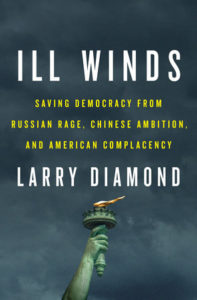 In recent years, China has spent a small fortune trying to influence the world through “soft power” — relying on language, cuisine and culture, rather than the conventional hard tools of aircraft carriers, spies and satellites. It has done this mainly through hundreds of Confucius Institutes that extol the wonders of traditional Chinese civilization, in the process setting off controversies about China’s growing influence around the world, notes Ian Johnson, a Pulitzer Prize-winning author of “The Souls of China: The Return of Religion After Mao.”
In recent years, China has spent a small fortune trying to influence the world through “soft power” — relying on language, cuisine and culture, rather than the conventional hard tools of aircraft carriers, spies and satellites. It has done this mainly through hundreds of Confucius Institutes that extol the wonders of traditional Chinese civilization, in the process setting off controversies about China’s growing influence around the world, notes Ian Johnson, a Pulitzer Prize-winning author of “The Souls of China: The Return of Religion After Mao.”
What’s often forgotten is that the People’s Republic has been down this road before — and to much greater effect. Its export, though, wasn’t calligraphy or Confucius but the violently revolutionary ideas of the country’s founding father, Mao Zedong, he writes for The Times in a review of Julia Lovell’s “Maoism: A Global History”:
At its height Maoism was one of the most important chapters in the Cold War. Especially in the global South, Maoism contributed to a series of remarkable events, including the greatest debacle of American military history (the Vietnam War), one of the most infamous cases of genocide (committed by the Khmer Rouge in Cambodia) and an epic guerrilla campaign (conducted by the Shining Path in Peru). …Today, China solemnly lectures Western countries not to “interfere in the internal affairs” of other countries, even though a few decades ago it sent military advisers to Africa to foment Maoist-style rebellions.
 As Lovell puts it, “Mao assembled a practical and theoretical tool kit for turning a fractious, failing empire into a defiant global power.”
As Lovell puts it, “Mao assembled a practical and theoretical tool kit for turning a fractious, failing empire into a defiant global power.”
“It is an irony that memory of the period during which China enjoyed arguably its greatest global soft power in its entire recorded history has to be ‘disappeared’ for political reasons,” she adds.
The Chinese Communist Party uses its leverage to strongarm Hollywood and ‘manipulate discourse abroad’. Testifying before Congress in May, National Endowment for Democracy vice president for studies and analysis Christopher Walker warned that China has Hollywood by the unmentionables, reports suggest.
“The Chinese government has trained its attention on Hollywood, where its presence shapes the industry in ways both visible and unseen,” he said. “Because China is an increasingly important market for the global film industry, entertainment firms have been striking deals that help give them access to that market, but put them at the mercy of Chinese censors.”
 Diamond, author of the new book, Ill Winds: Saving Democracy from Russian Rage, Chinese Ambition, and American Complacency, joins Penn State’s WPSU to talk about the threat China’s model of authoritarian capitalism poses to liberal democracy in the United States and around the world. Economics drives politics, and it’s easy to admire China’s growth while looking past things like increasing surveillance and lack of respect for norms and the rule of law.
Diamond, author of the new book, Ill Winds: Saving Democracy from Russian Rage, Chinese Ambition, and American Complacency, joins Penn State’s WPSU to talk about the threat China’s model of authoritarian capitalism poses to liberal democracy in the United States and around the world. Economics drives politics, and it’s easy to admire China’s growth while looking past things like increasing surveillance and lack of respect for norms and the rule of law.
Chinese authorities should immediately release to their families children held in “child welfare” institutions and boarding schools in Xinjiang. The government should cease unnecessarily separating Uyghur and other Turkic Muslim children from their families, Human Rights Watch said today:
 Under China’s “Strike Hard Campaign against Violent Terrorism,” an estimated 1 million Turkic Muslims have been arbitrarily detained in unlawful political education camps in Xinjiang since 2017. An unknown number are being held in detention centers and prisons. Chinese authorities have housed countless children whose parents are detained or in exile in state-run child welfare institutions and boarding schools without parental consent or access.
Under China’s “Strike Hard Campaign against Violent Terrorism,” an estimated 1 million Turkic Muslims have been arbitrarily detained in unlawful political education camps in Xinjiang since 2017. An unknown number are being held in detention centers and prisons. Chinese authorities have housed countless children whose parents are detained or in exile in state-run child welfare institutions and boarding schools without parental consent or access.
“The Chinese government’s forced separation of children is perhaps the cruelest element of its oppression in Xinjiang,” said Sophie Richardson, China director at Human Rights Watch. “Children should be either immediately returned to the custody of relatives in China or allowed to join their parents outside the country.”







